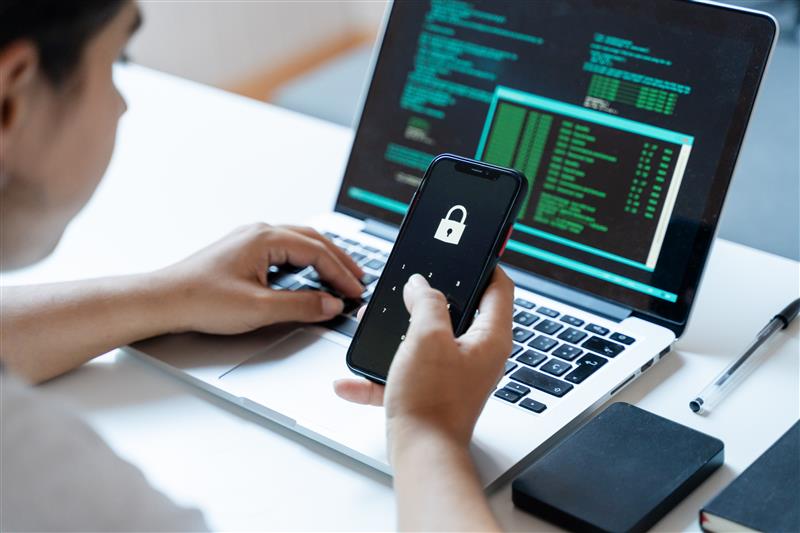See Beyond the BNPL Hype: Smart Ways to Safeguard Your Identity and Monitor Your Credit

Imagine: You purchase a television, a sofa, or some other expensive item, and all you have to do is quickly sign up for a Buy Now Pay Later (BNPL) program to pay off the debt in bite-sized installments instead of handing over huge chunks of cash up front. Who wouldn’t want to take advantage of this opportunity?
However, there are BNPL risks to consider. For instance, it’s not just honest consumers like you who think the BNPL model is attractive. Identity thieves also jump at this chance—but they will use your name, credit card number, and other personal info to do it!
When a scammer steals your identity to apply for BNPL programs and buy lots of big-ticket items, you are left to deal with the consequences while potentially losing money, time, job opportunities and more.How can you avoid becoming the victim of BNPL fraud? Let’s dive a little deeper into this important topic.
Identity theft risks associated with Buy Now Pay Later transactions

It's always important to protect your personal info, no matter where you are or what you are doing. But it is especially critical to protect your private data when BNPL shopping. The more often you use BNPL programs, the more likely it is that identity theft could occur.
As previously mentioned, once an identity thief has stolen your data, they can pretend to be you and sign up for multiple BNPL loans. Then they get to enjoy the items that you have unknowingly bought for them, while you have to handle the fallout. But this is not the only way that an identity thief can mess up your life. Hackers can also take over the account that you have set up with the BNPL lender, giving themselves control over your financial info that you have provided in that account.
Another trick for you to watch out for is a phishing scam, wherein the identity thief contacts you via text or email while they pose as your BNPL lender, urgently requesting that you click a mysterious link to “make a payment” or “update your account.” This link will probably take you to a fake page where your money or login details go straight to the identity thief.If you fall victim to a BNPL hack or scam, you will potentially be left with huge debt to pay off.
This can impact your credit score, especially if you are not able to pay the debt or have it forgiven. A bad credit score could reflect poorly on your future applications for jobs, rental properties, big purchases, and more. It’s clear that you need to protect yourself from BNPL identity theft!
Buy Now Pay Later fraud prevention
Employ some or all of these methods to help protect yourself against BNPL identity theft:
- Set up two-factor authentication when you create your BNPL loan account. For example, select to have a verification code texted to your phone whenever you log into your account.
- Make sure your passwords are complex and unique for each separate account that you create. That makes it harder for a hacker to guess your password.
- Consider signing up for credit monitoring with a comprehensive identity protection and restoration service like IDShield.
Credit scams can cause a lot of damage to your credit score, finances, and peace of mind as well. Keep an eye out for unauthorized purchases on your credit card. Are you noticing more money funneling out of your credit account than you recall spending? When you check your bills, do you see credit transactions happening for purchases, locations, or times of day that you do not remember?
Credit monitoring is essential to protect your BNPL transactions. You never know when identity thieves may try to steal your data, but the risk increases at certain times of the year, such as back to school, holidays, summer, and other seasons when people typically shop more or make bigger purchases.Signing up for credit monitoring services means that you no longer have to do all the hard work of watching out for your credit. A good credit monitoring service will provide these types of protective measures for you:
- Alerts to let you know of recent suspicious activity in your monitored accounts
- Credit reports for you to review
- Education to help you take proactive steps to guard yourself
- Restoration assistance if an identity theft event occurs
Actions to take if you suspect BNPL fraud or identity theft

Have you discovered that you were the victim of identity theft or fraud on a BNPL loan? You can report it to the BNPL lender. Since your BNPL provider authorizes the payment, they may accept liability for fraud that happened to your account if it was hosted on their platform.
Close the account that was compromised. Don’t reuse those login details for other accounts. Place a fraud alert with the major credit bureaus so that lenders will know to take extra precautions before opening new accounts in your name. Contact your local police department and report the theft to the Federal Trade Commission at IdentityTheft.gov.
How IDShield helps
IDShield is the comprehensive identity protection and restoration service that you need to help keep your personal information safe while signing up for Buy Now Pay Later programs. We provide tools to monitor your online presence and alert you of any unusual activity so you can take action the moment it happens. If identity theft does occur, our Licensed Private Investigators will work as long as it takes to restore your identity to its pre-theft status.We provide our IDShield Members all these services and more:
- Full-service identity restoration
- Cybersecurity and device protection
- Identity monitoring
- Credit monitoring
- Alerts about suspicious activity
- Up to $3 million identity fraud protection
- Personal information protection
Take the next step!
- Follow these basic tips to protect yourself against identity theft.
- Learn more about IDShield services.
- Read this post for the nitty-gritty on how BNPL works.
Pre-Paid Legal Services, Inc. (“PPLSI”) provides access to identity theft services through membership-based participation. IDShield is a product of PPLSI. All Licensed Private Investigators are licensed in the state of Oklahoma. The information made available in this blog is meant to provide general information and is not intended to provide professional advice, render an opinion, or provide a recommendation as to a specific matter. The blog post is not a substitute for competent and professional advice. Information contained in the blog may be provided by authors who could be third-party paid contributors. All information by authors is accepted in good faith; however, PPLSI makes no representation or warranty of any kind, express or implied, regarding the accuracy, adequacy, validity, reliability, availability, or completeness of such information.



